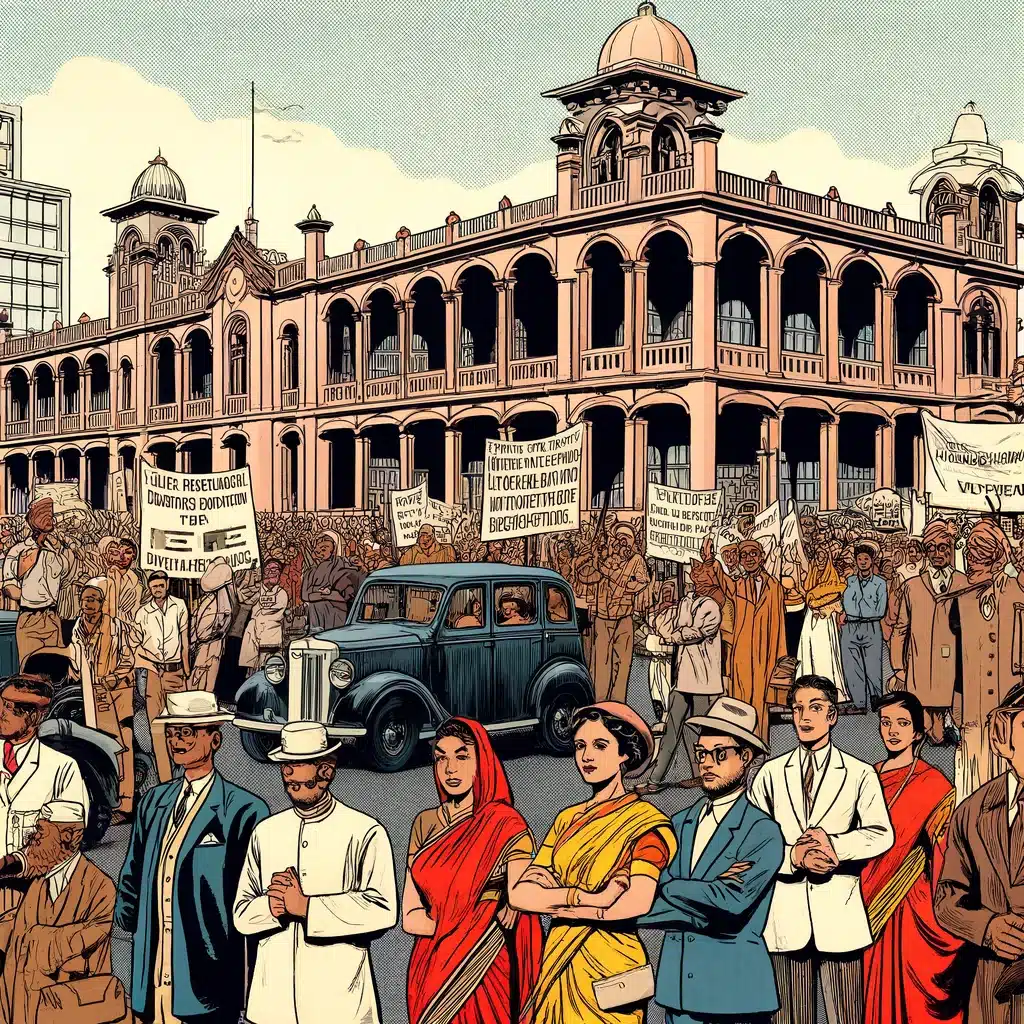Government Officers’ Union Denied! Discover why a bid for collective bargaining rights by non-gazetted officers was struck down by the Madras High Court. What does this mean for civil servants?

Citation: 1962 (1) LLJ 753, 1961 Indlaw MAD 2
Date of Judgement: 6th October, 1961
Court: Madras High Court
Bench: Ananthanarayanan Ayyar (J)
Facts
- The Tamil Nadu Non- Gazetted Government Officers’ Union which was recognized by government, represented by 10 of its members applied on 23rd December, 1957 to the Registrar of Trade Unions, Madras for registration as trade union, under Sec 5 of Indian Trade Unions Act, 1926.
- Registrar rejected the application, referring to Sec 2(g) and 2(h) of the Act as such an association of ministerial employees of the administrative department or officers of the government of Madras could not claim to be trade union and not eligible for registration under the act.
- Appeal under Sec 11 of the Act was also dismissed, hence petition before Madras High Court.
Key legal issues discussed
1. Whether the registrar has the jurisdiction to decline registration?
Yes
Court observed that under Sec 8, Registrar has to register the union, “on being satisfied that the trade union has complied with all the requirements of this Act”.
This implies that the Registrar has every power decline the registration. Moreover, appeal under Sec 11 is specifically provided for purpose of granting redress against the erroneous exercise of such power.
2. Whether sub- magistrates in the judiciary, tahsildars, officers of the treasuries and the home department of Government, who are all members of the appellant union according to its constitution, could, by any stretch of imagination, be regarded as “workmen” employed in “trade” or “industry”?
No
Court referred to National Association of Local Government officers v. Bolton Corporation[1], where Lord Wright has observed that however wide the term “trade” might be, the Supreme Court has approved that sovereign activities of the government are outside the scope of “industry”.
Supreme Court in Corporation of Nagpur v. Its Employees[2] also, referred to regal functions and held that Regal functions are inescapable, and inalienable. Such are the legislative power, the administration of laws, the exercise of the Judicial power. It could not have been, therefore, in the contemplation of the legislature to bring in the regal functions of the State within the definition of ‘industry’ and thus confer jurisdiction on industrial courts to decide disputes in respect thereof.
In the present case, appellant union purports to include among its members sub-magistrates of the judiciary, tahsildars entrusted with the powers of enforcement of the tax-machinery (Revenue Recovery Act, etc.), officers in charge of treasuries and sub-treasuries, officers of Civil Court establishment, and of the Home Department of Government. It is impossible to contend that these are not civil servants engaged in the tasks of the sovereign and regal aspects of Government, which are its inalienable functions; they cannot be included within the definition of “workmen” in an “industry” to whom either S.2(g) or S.2(h) of the Trade Unions Act can apply.
3.Can ‘Collective bargaining’ be exercised as a right by the civil servants?
No
“Collective bargaining” is a right conceded to labour organizations within the contractual field of the employer and employee relationship. It would become a grotesque anomaly if civil services were permitted to raise a “trade dispute” with regard to the dismissal of a civil servant, it may be for activities against the State itself, and at the same breath to claim that the constitutional safeguards under Art. 311, which are wholly irrelevant to the field of contract and to the employer-labour nexus, should be maintained infact for the benefit of civil services.
4. Whether non-gazetted government officers can form trade unions or not?
The court agreed with the decision of the registrar and held that section 8 of the Trade Union Act says Registrar has to register the union “on being satisfied that the Trade union has complied with all the requirements of this act” hence where the definition under section 2(g)(definition of workmen) and 2(h)(definition of Trade union) are themselves inapplicable to the so-called union, the registrar has every power to decline the registration.
[1] 1943 A.C. 166.
[2] 1960 Indlaw SC 90.


